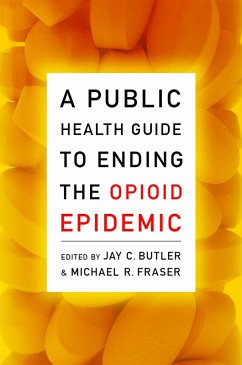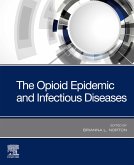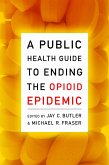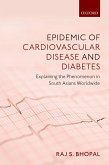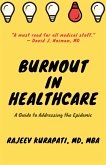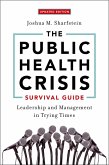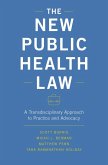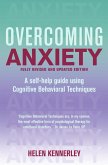THE DEFINITIVE GUIDE FOR PUBLIC HEALTH PROFESSIONALS FIGHTING THE OPIOID EPIDEMIC The opioid crisis has devastated families and communities across the United States. Changes in policing and medical practices have been swift, but they've achieved only a modest impact on the fundamental causes of substance misuse and addiction. The necessity for upstream intervention is clear. But what does that look like?
A Public Health Guide to Ending the Opioid Epidemic does what only a public health approach can: offer credible, scalable, and empirically supported approaches to uprooting one of society's most pernicious challenges. It systemizes the core tenets of the public health approach to substance misuse and addiction, which alongside clinical approaches (prescription guidelines and monitoring, increased access to overdose-reversal medication, and medication-assisted treatment availability) offers a roadmap for end-to-end response to this diverse problem. Core elements of the public health approach, all covered here in practical terms, include: ? How to support community-based, primary prevention of substance misuse and addiction in different settings and populations ? How to effectively address the cultural, social, and environmental aspects of health that are driving the current epidemic ? How governmental public health agencies play a significant role in responding to the epidemic, both in the field's traditional model of disease surveillance and control and in more directed approaches to health promotion (building community resilience; addressing the impact of adverse childhood events; mitigating the root causes of addiction) These frameworks offer a foundation for understanding, analyzing, and meaningfully impacting the burden of opioid misuse and addiction in any population or setting.
A Public Health Guide to Ending the Opioid Epidemic is a roadmap for meaningful change.
Dieser Download kann aus rechtlichen Gründen nur mit Rechnungsadresse in A, B, BG, CY, CZ, D, DK, EW, E, FIN, F, GR, HR, H, IRL, I, LT, L, LR, M, NL, PL, P, R, S, SLO, SK ausgeliefert werden.

